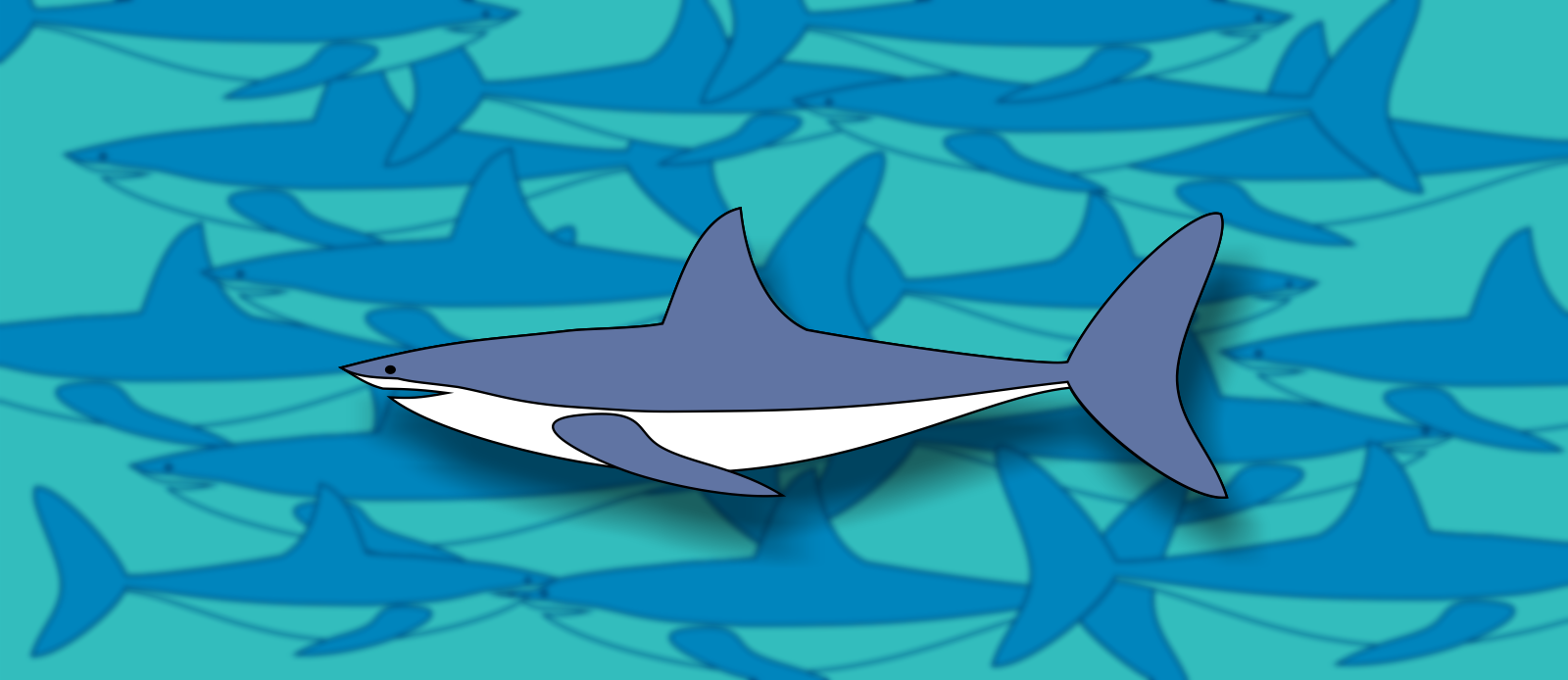
Sharks waiting for prey
Inverted food pyramids (more predator biomass than prey biomass) occur relatively frequently at least in pristine nature. In such cases predators have to cover their food needs from outside the local area. In most cases, therefore, predators have to engage in (costly) migratory foraging. Researchers from France, the USA and Australia have documented a case in French Polynesia, where sharks use a much more economic approach.
The Fakalava pass in French Polynesia hosts an impressive number of sharks. Video analyses of the scientists resulted in average numbers of 600 sharks in the area or a density of 14 – 40 sharks per hectare. To study migratory foraging of sharks thirteen animals were equipped with acoustic transmitters and followed by hydrophones. In contrast to expectations this analysis demonstrated low migration of sharks, in particular from June to August. Scientists documented, however, aggressive feeding of sharks on shoals convening at the Fakalava pass for spawning. Analysis of fish numbers combined with computer modeling demonstrated that these spawning aggregations are sufficient to support shark numbers at the Fakalava pass at least in times of low migration.
Source: Mourier et al., Current Biology 26, 1-6